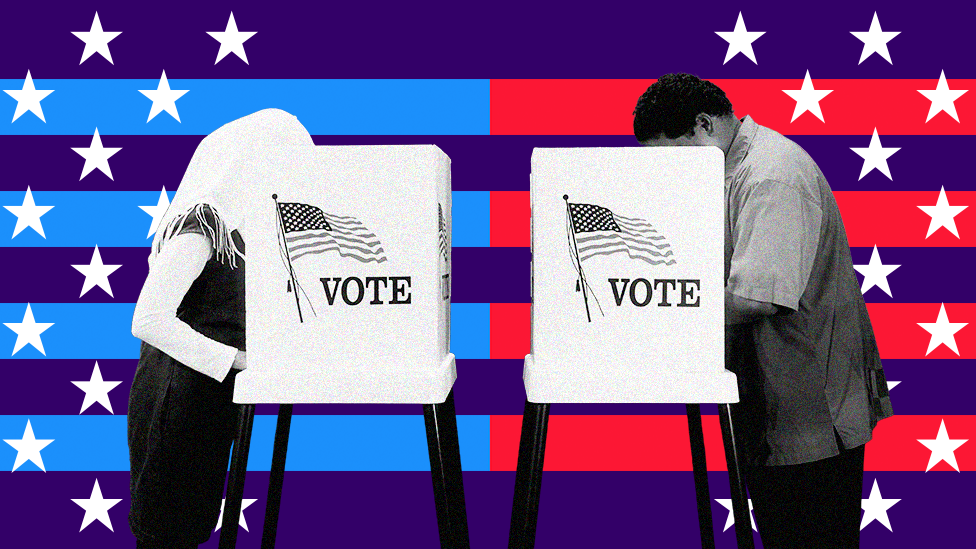Article written by editor in chief Benjamin Dominguez – Volpe
As the 2024 election cycle heats up, many Americans find themselves grappling with a disheartening reality regarding the candidates they have to choose from at the ballot box. The candidates vying for office from both the Republican and Democratic parties often seem to misrepresent voters’ ideologies. Voter dissatisfaction is palpable, with polls indicating that a significant portion of the electorate feels trapped between two unappealing choices. In the presidential election, which is undoubtedly the most anticipated election in November, it is clear that undecided voters and independent voters are the ones left out in the cold the most. Both candidates have shown they would rather continue to appeal to their base and wait for undecided voters to flock to the lesser of two “evils” than to reach out and attempt to appeal to the crucial voters who will ultimately decide who occupies the White House for the next four years.
For Republicans, the problem is more visible in statewide races than in the presidential ticket. A common notion since roughly late 2021 is that a majority of voters are dissatisfied with the Biden administration, and Republicans were able to capitalize on that dissatisfaction in statewide elections, such as the race for governor of Virginia in 2021. However, in the 2022 midterm elections, Republicans let one of their biggest opportunities to take back the House and the Senate by large margins slip away, resulting in a razor-thin House majority. The President had been suffering from record disapproval, and Republicans were poised to take back both legislative chambers and leave President Biden in a bind. What happened? The answer is simple, the lack of adequate candidates. Two notable statewide candidates who ran as Republicans in 2022 were a television doctor and a football player, both of whom ran in elections that could have most likely been won by any other nominee. However, they fumbled the chance and handed Democrats the Senate. While not as significant an issue as it was in 2022, candidate quality remains a concern.
For Democrats, their strategy revolves around changing the narrative. In an era where the incumbent Democratic President, Joe Biden, is still widely disapproved of, the current Vice President, who is part of this unpopular administration, is trying to distance herself from the controversies surrounding it. Harris is attempting to convince voters that she is a completely different person and that, if elected, she will accomplish great things for the country. Many of the promises she and Joe Biden made four years ago are being repackaged and used again as talking points for the upcoming election. If messaging is truly the key to success for Democrats, then they are not exactly excelling at it. Rhetoric from former President Barack Obama serves as a perfect example of this. Obama pressured and shamed a voter bloc they are trying to court—Black male voters—by guilt-tripping them into voting for Harris. Obama emphasized that reluctance to vote for Harris was coming from “the brothers” (meaning black male voters) with his exact quote being as follows:
“Part of it makes me think that, well, you just aren’t feeling the idea of having a woman as president, and you’re coming up with other alternatives and other reasons for that,”
While there must be some reasoning behind this approach, it is safe to say that it does not appeal to undecided voters.
Ultimately, both the statewide and nationwide elections will likely be decided by a slim margin, regardless of which party ends up winning. While most voters have already made up their minds, it will be that crucial handful of undecided voters who determine which party controls the executive and legislative branches on Election Day. The narrative that will sway the election in favor of one candidate or the other is still unknown. However, if one had to guess, a strong narrative would likely consist of a candidate tapping into the majority of voters’ disapproval of the current administration, the less-than-stellar economy, the crisis at the southern border that has funneled illegal immigrants into the country, and the U.S.’s standing abroad regarding our involvement in foreign wars and our ability to project strength on the world stage

